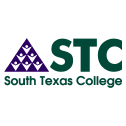What do they do?
Perform secretarial duties using legal terminology, procedures, and documents. Prepare legal papers and correspondence, such as summonses, complaints, motions, and subpoenas. May also assist with legal research.
Also known as:
Confidential Secretary, Coordinating Legal Practice Assistant, Judicial Administrative Assistant, Legal Administrative Assistant, Legal Administrative Secretary, Legal Coordinator, Legal Office Support Assistant, Legal Secretary, Magistrate Assistant, Secretary
-
-23.4%
Change
Ranks #60 in job growth rate350Job Openings
Ranks #13 in net job growth
-
Georgetown University
Washington, DC
-
Renton Technical College
Renton, WA
-
Northwest Career College
Las Vegas, NV
-
Anoka Technical College
Anoka, MN
-
Central Texas College
Killeen, TX
Looking for colleges that offer a specific major? Use the College Match Tool to find your best-matched schools and discover your estimated Net Price!
- Doctorate or Professional Degree (1%)
- Master's degree (3%)
- Bachelor's degree (18%)
- Associate's degree (21%)
- Some college, no degree (33%)
- High school diploma equivalent (23%)
- Less than high school diploma (2%)
People in this career often have these skills:
- Reading Comprehension - Understanding written sentences and paragraphs in work-related documents.
- Writing - Communicating effectively in writing as appropriate for the needs of the audience.
- Active Listening - Giving full attention to what other people are saying, taking time to understand the points being made, asking questions as appropriate, and not interrupting at inappropriate times.
- Speaking - Talking to others to convey information effectively.
People in this career often know a lot about:
- Administrative - Knowledge of administrative and office procedures and systems such as word processing, managing files and records, stenography and transcription, designing forms, and workplace terminology.
- Law and Government - Knowledge of laws, legal codes, court procedures, precedents, government regulations, executive orders, agency rules, and the democratic political process.
- English Language - Knowledge of the structure and content of the English language including the meaning and spelling of words, rules of composition, and grammar.
People in this career often have talent in:
- Oral Comprehension - The ability to listen to and understand information and ideas presented through spoken words and sentences.
- Written Comprehension - The ability to read and understand information and ideas presented in writing.
- Written Expression - The ability to communicate information and ideas in writing so others will understand.
- Near Vision - The ability to see details at close range (within a few feet of the observer).
- Oral Expression - The ability to communicate information and ideas in speaking so others will understand.
- Speech Recognition - The ability to identify and understand the speech of another person.
- Speech Clarity - The ability to speak clearly so others can understand you.
- Information Ordering - The ability to arrange things or actions in a certain order or pattern according to a specific rule or set of rules (e.g., patterns of numbers, letters, words, pictures, mathematical operations).
People in this career often do these activities:
- Proofread documents, records, or other files to ensure accuracy.
- Prepare legal documents.
- Send information, materials or documentation.
- Answer telephones to direct calls or provide information.
- Schedule appointments.
- Record information about legal matters.
- Operate office equipment.
- Obtain personal or financial information about customers or applicants.
- Prepare documentation for contracts, transactions, or regulatory compliance.
- Prepare business correspondence.
- Issue documentation or identification to customers or employees.
- Provide information to coworkers.
- Make travel, accommodations, or entertainment arrangements for others.
- Search files, databases or reference materials to obtain needed information.
- Record information from meetings or other formal proceedings.
This page includes data from:

 Occupation statistics: USDOL U.S. Bureau of Labor Statistics Occupational Employment Statistics
Occupation statistics: USDOL U.S. Bureau of Labor Statistics Occupational Employment Statistics






